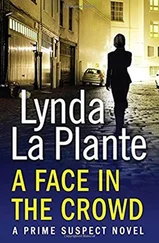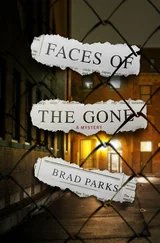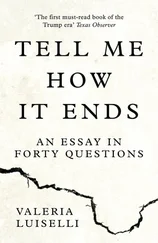The good thing was that as Z didn’t understand Spanish, and Federico only pretended to understand me, there was no way I’d end up looking like an idiot.
*
I’ve decided to name the three little blackguards, who have now taken up permanent residence in my apartment. I don’t know if they’re male or female and I’m loath to prod their stomachs for fear they’ll scratch me if my shaky hand suddenly comes up against a pair of feline testicles. They’re called Cantos, Paterson, and That. Naturally, I never know which is which, so I sometimes just call out: “That Paterson Cantos!” and the three of them appear. But those names are too serious to be spoken lightly, so I mostly call them all by their common characteristic: Fucking Yanks.
*
The children play hide-and-seek in this house full of holes. It’s a different version of the game. The boy hides the baby and I have to find her.
*
After the incident in Morningside Park, my ex-wife wouldn’t let me come back to Manhattan to see the children. You go and get drunk on me, Gilberto, and the children get frightened on me. The señora liked that “me” thing, as if everything were a conspiracy against her person. Some kids went and hit the poor little boy on me and the girl had to find a cab on her own to bring you all back; and you in that state, Gilberto, why do you do these things to me?
The first weekend I should have been with them, they were taken to Coney Island. The children call me from there, with the Sunday pocket money their mother gives them. They know I was born on a Sunday and for that reason alone can get very depressed. That’s why they call, they’re well-brought-up children: Today we’ve seen the sideshow with the vomiting dwarf and he reminded us of you, Papa, but smaller. He drank pints and pints of water and then sicked it up into a bucket. It wasn’t a trick, Papa, he really did drink and sick up lots. And then Mama bought us some strawberry lollipops. But you’re allergic to strawberries, Papa, and you could die.
*
I had to tell the boy off for hiding the baby in one of the compartments in the fridge.
*
I’ve begun to suspect that during that summer of ’28 I made a kind of Faustian pact. I can’t remember having done it, of course, nor do I really believe in the Devil, Goethe, or Marlowe, not even in Thomas Mann, who brought out yet another Faust a few years back. But something must have happened during my successive deaths, something that explains the three-pound fat blind man I am now. It’s not that the devil has given me anything in exchange, so I can’t understand the scourge of the man boobs or this so inelegant death.
*
In that life, hardly anyone had definitively died. Xavier, for example, hadn’t, although he would also die every so often. Sitting beside my orange tree, I used to write letters to them all as if we were already ghosts, as if, with my sinking-ship descriptions of Manhat-tan, I was contributing to the enactment of our future. “Through the two windows, came the park, full of children’s voices,” I wrote to Xavier. “It’s a terraced park, like a show seen from the gallery of my window. Here the children are children. The grown-ups kiss, sometimes, when they’re not too tired. I’m alone and naked, with only a silk bathrobe covering me”: the syntax of aspirational unhappiness.
But one day the orange tree went and died. I’d gone on a trip to Niagara Falls, and didn’t water it before leaving. When I returned, it was completely withered — as if years had passed instead of scarcely two weeks. Its sudden, absolute death made me so sad, seemed so prophetic in its way, that I took it upstairs to the roof terrace of my building and abandoned it right there.
*
Mama, guess what I’ve got in my hand.
I don’t know. What is it, darling?
An orange tree.
What?
Didn’t that make you laugh?
No.
Well, it didn’t make me any oranges.
*
Once, toward the beginning of fall, I was able to see the woman with the dark face and shadows under her eyes for longer than the brief instants our respective parallel train journeys normally allowed us. The doors of the train in which I was traveling had got stuck and we’d been stranded in the station for more than ten minutes. Then another train approached from behind on the adjoining track and stopped next to ours. In the opposite carriage, her head resting against the window, was the woman, wearing an olive-green cloth hat and a red coat, buttoned up to the neck. She was reading a hardcover book. By leaning forward a little, I managed to see the title, which, to my surprise, was a Spanish word: Obras . The woman felt herself being watched and raised her head — the enormous shadows under her eyes, her enormous eyes. We stared at each other like two animals dazzled by a strong beam of artificial light until her train pulled out.
*
I haven’t talked to my husband for over a week. I know he spends the night in the house, because sometimes, when I can’t sleep, I sense him getting into the bed. He smells bad. He smells of the street, restaurants. He smells of people. Other times, I know he gets into our son’s bed and sleeps there. I hear them getting up together in the morning, taking a shower, having breakfast with the baby, leaving for school. Sometimes, he takes the baby with him for the whole day. At others, he leaves her here with me and doesn’t come back until late evening. When he does return, he says good-night to the children and lies down on our bed to watch television. When I get into bed, he gets up and starts working on something.
This is unbearable, my husband says to me.
I know. I can’t withstand it either.
*
Have you ever been married, Homer?
Do you know the difference between analytical and synthetic utterances? he asked in turn.
I’d been silently licking my cocaine ice cream and thinking of telling him about having once wanted to marry a woman called Clementina who didn’t love me one little bit.
No, sir, I replied. What is it?
He wiped his hands on a colored handkerchief and began in a professorial tone:
Analytical: utterances that are true by virtue of their meaning. Example: “Every bachelor is an unmarried man.” Synthetic: utterances that require something from the world to make them true. Example: “Every married man believes enduring happiness is dancing his whole life with the ugliest woman.”
And which am I?
You’re not an utterance, Owen.
*
The boy overheard our conversation last night, and questions me while I get him ready for school.
So who’s Withstand, Mama?
What do you mean?
You said something about Withstand to Papa.
Withstand is just a word, my love.
What about “Without”?
*
Now I am just that: an utterance. And that’s exactly why I left my wife, because I wasn’t, at forty-something, in the mood for dancing with the ugliest woman. Not even like this, so fat, so blind.
*
Last night I got home, a bit more drunk than usual, from a dinner in the house of the English vice-consul. There was the host, his wife, an Argentinian dandy, and three Yanks (men, not cats) with three Yankee women (also not cats, though not far off). The moral problem with Yanks (male and female) is that they think they are Swedes, yet, in certain circumstances, they’re just as bad-mannered as Mexicans, but more calculating and hypocritical. We talked the whole night about public works in Philadelphia, the new governor, the dreadful summer climate, the number of flies (male and female), until the dessert arrived and one of the ladies broached the topic of the scandalous infidelity of some famous politician. The gentleman with most seniority, and surely the most experience of the very behavior he was decrying, began speaking. While twisting his wedding ring — as if tightening the screw of an obsolete gear system — he constructed eloquent phrases on the ultimate meaning of marriage vows. Someone mentioned Russell’s Marriage and Morals . I recalled — I’d read the book in my youth — that the chapter entitled “Marriage” was followed by another called “Prostitution.” I said this aloud and everyone looked at me in silence until one of the Yankees, the man on my right, gave a paternal cackle, patted me on the back, Oh, you Mexicans. I felt a desperate need to piss — this always happens when I become the center of attention. One of the wives demanded an explanation, which I did not have to give thanks to the fact that the Argentinian got up to take his leave and eased the tension. The ladies formed a group, the gentlemen lit cigars, and, as soon as I could, I also took an effusive farewell of the English vice-consul and his friends, and went out the front door.
Читать дальше











